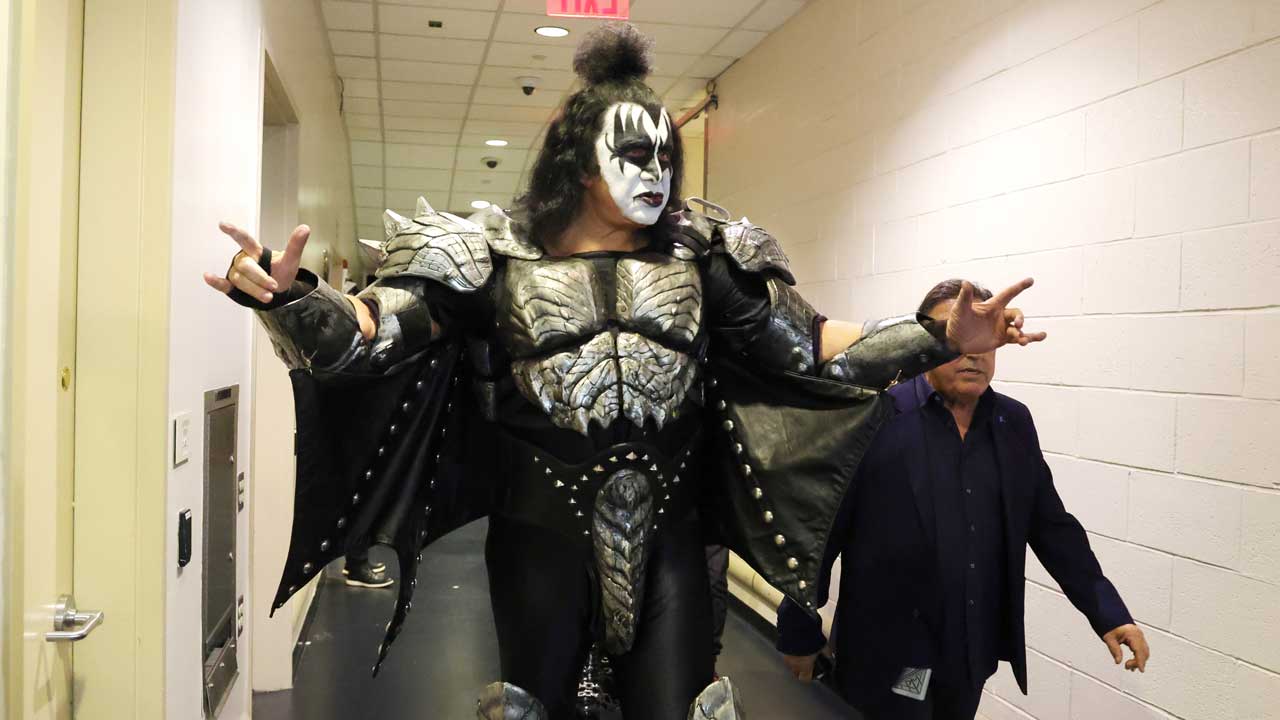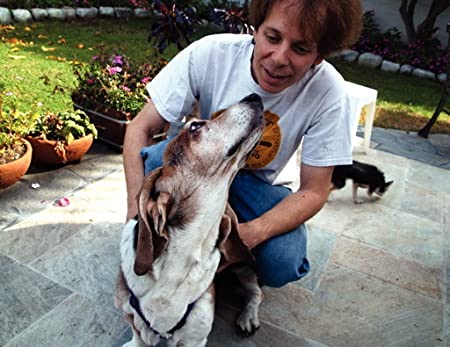At the end of the day, Mother Nature and Father Time get their comeuppance,” Gene Simmons offers philosophically. “They put their hand out and say: ‘Okay, time for you to pay us for this wonderful life you’ve led.’ You have to have the dignity, self-respect and pride to know when it’s time to get off that stage.”
Making that move hasn’t been easy for Simmons. When Kiss wrapped up their nearly four-year-long End of the Road tour last month, it brought the group’s 50-year career to a rousing finale. Kiss have taken their sweet time crossing the finish line, but now it’s over (this interview was conducted prior to the final run of shows) the 74-year-old bassist can look back at a life and career of his own choosing and making.

Let’s go back almost fifty years to the first Kiss gig.
I remember passing by a place that used to be the Popcorn Pub in Woodside, Queens, New York. It was not a very cool place. Paul [Stanley, guitar/vocals] and I were just coming off of Wicked Lester [their pre-Kiss band]. As Paul and I were transitioning from Wicked Lester to Kiss, Peter [Criss, drums] joined us in the fall of 1972 and we played as a trio for two months before Ace [Frehley, guitar] came in.
Take us through the evolution of a Kiss show – from the formative days playing in local dives, to the 70s band’s heyday, to the End Of The Road tour and its over-the-top theatrics.
Managers either have vision and see the future – the big picture – or they’re like a book-keeper, just keeping tabs on things. We were lucky to meet a guy named Bill Aucoin. He was one of the names I found in the Billboard year-end issue, where they list all the major movers and shakers in the music business. Bill saw us and said: “Okay, I’m going to get you a deal in two weeks or you don’t have to use me as a manager.”
And he did. From there he became the captain of the ship. He started talking early on about trademarks, and we didn’t know what that was. “Yeah, we’re going to trademark your faces so nobody can copy you.” “Oh, that sounds like a good idea.” Then he said: “We don’t want to let people see your real faces.” We said: “Well why not? What about chicks and all that?” “No, no, you’ve got to keep up the mystery.” “Oh, okay, that sounds like a good idea.” He came up with that.
And it was Bill Aucoin who said: “Okay, we need to find gags.” Bill scoured around and found a company that could levitate the drum set. Bill brought in a magician named Amazo or something, a fire-breathing guy who was completely bald. We asked him: “Why are you bald?” He said: “I have hair, but I shaved my head.” “Well, why do you want to do that?” And then when he spit fire in Bill Aucoin’s office and singed the ceiling, we said: “Oh, that’s why you shaved your head!” [laughs]
And for some reason Bill said: “One of you guys has got to spit fire during Firehouse”. We said: “What? We’re a rock band.” And he said: “Yeah, don’t worry about that.” And somehow I wound up being the guy to spit fire. And the lit candelabra we used on stage was also the idea of Bill Aucoin.
Whose idea was it to introduce the lighted ‘Kiss’ sign?
That came from Bill Aucoin. What happened in those early days is bands would just show up and play; you wouldn’t have any logos or anything. But we had this very heavy sign with our name that had to be connected to electricity, and when the Kiss logo turned on it was blinding. So much so that when the blackouts happened, you still saw the Kiss logo etched into your retina.
We’d be opening for bands like Manfred Mann, Argent and Savoy Brown, and after we came off the stage our logo would still be above their heads. As the English would say, we went down a storm, and we were called back to do encores.
What are you going to miss the most when it’s over?
I feel like George Lucas, where you helped create this thing that becomes not just movies and stuff, but a culture. Like, when you go to ComicCon or Star Wars conventions, people dress up and it’s how you look, how you walk, how you talk. We created a culture with Kiss. And after Lucas sold to Disney, that doesn’t mean it goes away. You can see the vestiges, the conventions and the TV shows that continue on. And we intend on keeping Kiss going, but simply not as a touring band, and that comes out of pride.
Madison Square Garden on December 2 will be the last Kiss show ever. Do you feel you’ll have a hard time keeping it together?
Yes. I can glibly sit here and talk about how I’ll be feeling for our last show, but I’m sure it’s going to be a different kind of a thing, and much deeper. I mean, what a journey it’s been! What a trip!
So the Madison Square Garden gig will be Kiss’s last show?
Yes, it will be the last Kiss show of all time. We’re not going to put on the make-up and put on shows anywhere. We have too much respect for what we’ve been able to accomplish, and every member that’s been in the band deserves a slice of the accolades. That includes [former guitarists] Mark St. John and even Vinnie Vincent, no matter how much trouble he caused us, or anguish.
Everybody contributed to this thing and they have a right to be proud, because it takes goddamn hard work. If you think it’s just about putting make-up on your face and you can have a fifty-year career, boy, are you dreaming.

